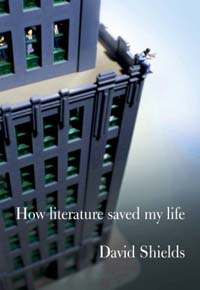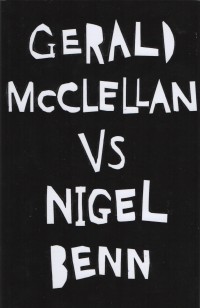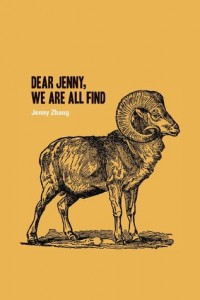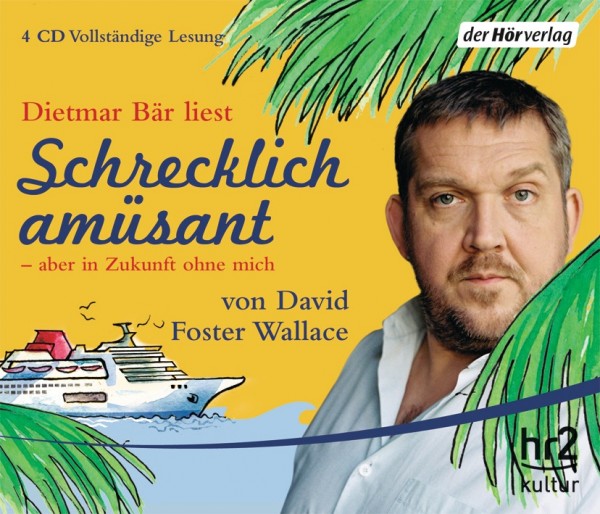Speculations about Goodreads & Amazon (instead of eating lunch)

I was going to go get Subway for lunch today, but then I started thinking about what was more important: eating or social media? I decided eating, but then I remembered that I used to be a social media consultant, so whatever, here’s some thoughts on this Goodreads/Amazon thing that a lot of people (thirty-five, maybe) are really worked up about:
- Amazon isn’t Google, which does a really fantastic job of buying the cutest startups at the pound and then leaving said startups on the side of the road after they get old and ugly and start pissing on the carpet. Jeff Bezos invests and improves his acquisitions–just look at how Audible integrated with Kindle so that users can switch back and forth between listening and reading. Nothing is going to happen overnight, but expect some serious changes in your Goodreads user experience.
- Mashable ran the headline “Amazon Buys Goodreads to Make Reading Experience More Social.” This sounds utterly terrifying, because the last thing I want to do when I’m reading is socialize. But I guess it also sounds gorgeous, because it might create some dystopian world where we see status updates like “Fat Jim checked into His Bathtub, Bitch! (with Georges Bataille and A Diet Coke).” READ MORE >
David Shields — How Literature Saved My Life
 How Literature Saved My Life
How Literature Saved My Life
by David Shields
Knopf, February 2013
224 pages / $24.95 Buy from Amazon or Powell’s
Published last month, How Literature Saved My Life is both a boldly written love note to a most precious of subjects, and David Shields’s latest statute in his quest for “art with a visible string to the world.” Short of a true sequel to his polarizing 2008 “novel,” Reality Hunger, Shields’s latest work does devote more than a little page space to proselytizing for his vision of a world where fact and fiction combine and literary tropes like linear plot lines and fanciful character design fall by the wayside.
Sharing my current reading choice with friends — and an unsolicited suggestion that they look into it — it was a common to hear, But isn’t it just for writers and literature snobs?
Well, yes.
Casual readers may be able to sieve out the life lessons, but will likely find themselves drowning in a sea of name drops and literary in-jokes. Which is not to say that a novice reader couldn’t use the book to take studious notes and build a respectable reading list, but I wouldn’t consider that sort of parergonal use to be a huge selling point.
Truth is, how many summer readers are going to pick up a book called How Literature Saved My Life in the first place anyway? And it’s probably my fault for recommending it for a general audience, because it isn’t. Shields makes no bones about writing for a niche audience, one he can’t help but self-consciously wonder about with a market analyst’s zest, a fact of life for virtually any creative professional these days, whether we like it or not. Unabashedly, Shields probes this and other insecurities writers in the digital age run up against with far great frequency and impact than their predecessors.
Is literature worth writing anymore? Can it adapt without losing whatever attributes make it recognizable as “literature”? Who am I writing for? Franzen: Why bother?
For literary types with similar doubts, Shields’s writing comes across prescriptive, offering answers to questions lie those raised by Jonathan Franzen in Why Bother? (originally published as Perchance to Dream: In the Age of Images, a Reason to Write Novels), and in one sense answering David Foster Wallace’s charge against forms of literature that have no remedy for the ills they diagnose.
March 29th, 2013 / 12:00 pm
Hahaha, “Ask a Mid-List Author,” good one J. Robert Lennon. AND the new Graywolf site is nice.
25 Points: Gerald McClellan vs Nigel Benn
 Gerald McClellan vs Nigel Benn
Gerald McClellan vs Nigel Benn
by Sam Pink
Wormblanket Press, 2013
$10.00 buy from Wormblanket Press
1. Who are these people. I picture Gerald McClellan in a ring with Nigel Benn but maybe they’re just labels on a whiskey pint, they’re on the shelf next to each other like “Hey, we made it,” and maybe they have. Shelf life for life.
2. Sam’s Chicago doesn’t require much “game” or at least if you’re pretty for a white boy it kind of seems like the junkies are all thinking like a bunch of teenage girls.
3. I felt the distinct possibility of having teenage girls want to/pretend to want to fuck me to be alluring but not in a sexual way. All those big eyes with mascara and vodka and older brothers smaller than me. Everything would ride on those brothers being smaller than me, though. They’ve got retractable batons. My little brother once had a friend named Erin that I wanted to like me because she was going to art school in France according to my mom.
4. I worked in a warehouse once. So did I. The people in Sam’s warehouse seem like chillers. I want to throw a jammer with these chillers, and then they do. Same thing about the feeling in “Nice Job”. I would have never said “Nice Job” to anyone driving a forklift. Thought about it though.
5. Limited death types/options on pursuing boxing as a future.
6. Every story has a choice. Listing choices is easy. Spending the night outside of your girlfriend’s apartment because you have no other choice, even if you think the rats are sweet, is a hard choice to make. The movements of Sam’s characters feel both arbitrary and necessary, but always made by one person alone.
7. No matter what, the homeless will always have more friends than you.
8. G’be k’n me is something I’d like to incorporate into my regular speech.
9. If my grandfather always said, “Hey, now who’s this little shithead?” I would be okay with it because my grandfather has Alzheimers. Mine are all dead.
10. Just went to the movies last night. Didn’t question why no one talked to me. Kind of want to move to Chicago. READ MORE >
March 28th, 2013 / 12:09 pm
Last Friday, Tao Lin came and presented to my department at UIC on his development as a poet, 2001–2013. The notes from his talk are here. I also recorded the event, and will see what I can do about making that available, should all parties prove willing.
STEEP DREAM

ALL OVER THE NEW GESTURAL POETRY.
The Internet taught children to design themselves in a white space. Now, they are to create in that space. This burden. Laughter.
Appropriation was the first mimetic. The late remix, post-DJ culture of the 20whatevers sidevolved into a romance of the weird and origin-less. Repeat, offend, react. Horse eBooks, PT Cruiser, drugs, fetishes about whispering, shitting, looking into a new blank digital void. But it lasted only as long a generational breath. Weird Twitter rose and fell like a bird in a harsh wind.
25 Points: Dear Jenny, We Are All Find
 Dear Jenny, We Are All Find
Dear Jenny, We Are All Find
by Jenny Zhang
Octopus Books, 2012
116 pages / $12.00 buy from Octopus Books or SPD
1. MOTHERLANDS
“keats was married to vladimir nabakov
they gave birth to my aunt who spoke no Spanish
and colonized all of western Europe
and that’s why michael’s dad ate my left toe leaving me
crippppled”
(“Lifestyle: I Think I Had a Nice Life and Then I Was Doing Weird Things Like Talking About Having a Bad Life”)
2. I started following Jenny Zhang on her blog Fashion For Writers, back in 2007 or something when I made my living selling vintage clothing to places like France for too much shipping and attempting be less insular by people taking photos of what they were wearing in other places. She was in Iowa wearing coats that made me feel like I could survive winter in Ohio and Montreal, where I was planning to move next.
3. Broke and preoccupied with trying to survive winter by books and digging my car out with hot water to get to the thrift store the morning of 50cent tag day, my Canadian neighbor didn’t own a shovel. “Why doesn’t your city know how to buy salt for their streets?!” I stayed mute and poured water and felt mute that winter, representing a city I had exclusively lived in and identified with and clutched at matryoshka dolls from antique malls lining my shelves and wanting to chuck one at my car for living somewhere that made it requisite.
4. I think I owned, like, 10 vintage coats at one point. I got pretty disgusted with myself that winter.
5. A couple weeks back, Heather Christle reposted the caddis fly larvae works of Hubert DuPrat in Cabinet Magazine and posited the idea that poems are analogous to sheaths, constructed from details of our shifting environments. I didn’t set out to write a companion essay review, but 25 bullet points are hard to extract from concepts this immaculately presented as external, when poetry is thought of as a “internal” and “emotional” when it communicates a lot like clothing. Here’s the traditional review reaction I had if I felt differently:
6. “Dear Jenny makes me feel so many more creepyvoyeurfangirl things, like ‘yikes oh yikes I’m exceedingly aware of how we’re reading ancestrally and seeing the sheaths in their past and future relevant form reading anything, into love poems to things and people and continents dead for centuries!!!!!’” Genuinely felt, but I sound twelve.
7. “Family members are resurrected for a second and then blown back to poppy fields before you can say ‘twat.’ Zhang’s incurably dynastic and reads prosaically in its turns and forms, and they’re bratty and fleshly corporeal in each syntactical bowel movement.” Blurb suited for an
Amazon review: discarding.
8. “We are all find she says
bonjour well because
well she is Chinese and anyway
we don’t use R’s”
(“My Mother Leaves Me a Message Where She Pronounces All Romance Languages in a Deep Voice”)
The semiotic problem of “Asian-American” is the book’s seppuku, which I mean gesturing with misappropriation like Zhang does in so many poems. The inherent difficulty of language in relation to identity as American is as blatant as asking “what are you?” to your face, language can answer that anything but in part. If the audiences of the speaker’s voice heard I was from Ohio, they’d think definitely lived near cows and should have a twangy Gummo accent. How many times did I cringe at Harmony Korine’s decision to film in Nashville? Each and every time I moved.
9. It would be better to use a dung beetle analogy instead of the silk casings Octopus Books gives to its larvae. Dear Jenny’s concerns and permutations of scatology is made legitimately profound, or find its profundity is pointed at without making the profane pornographic. Example:
10. “. . .I’ve been coursing through the finite rivers
the smudge of black on yr fingertips and I’m yrs
ya cunt, I’m yrs, yr the cuntiest
cunt I’ve ever cunted” (“Key Phrase”) READ MORE >
March 26th, 2013 / 12:09 pm

